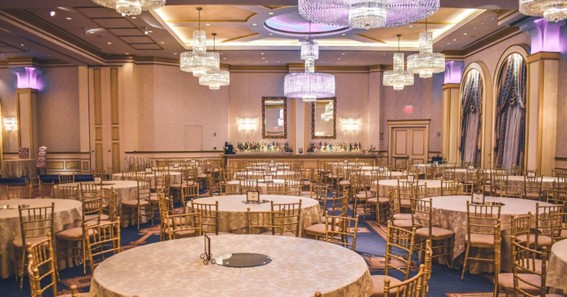Image source: Unsplash
A well-planned event is more than just a gathering—it’s an experience that reflects careful coordination, creativity, and attention to detail. From understanding a client’s vision to ensuring smooth execution, each aspect plays a crucial role in delivering a flawless occasion. As noted by Holland Pierik, budget management, venue selection, and theme development set the foundation, while logistics and vendor coordination ensure everything runs seamlessly.
Guest engagement is equally important, as thoughtful interactions and technological enhancements can elevate the overall experience. By balancing structure with flexibility, expert planners create memorable events that leave a lasting impression on attendees.
Key Elements of Event Planning
Every detail, from scheduling to decor, plays a role in crafting a seamless experience. Planners must anticipate potential challenges and develop solutions before issues arise. The ability to foresee complications and address them proactively sets apart truly skilled professionals in this field. A well-structured plan ensures efficiency without sacrificing creativity. Events that leave lasting impressions often balance structured logistics with imaginative elements, such as unique themes or interactive experiences.
Adaptability is crucial when managing unexpected changes. From dealing with last-minute vendor cancellations or weather-related disruptions, expert planners stay composed and find alternative solutions quickly. The ability to pivot while maintaining a high-quality experience sets professionals apart. A planner’s quick thinking and resourcefulness can turn potential setbacks into opportunities for creative problem-solving.
Knowing Client Goals and Budgeting Wisely
A successful event begins with a deep understanding of the client’s vision. Clear communication helps uncover expectations, priorities, and the overall purpose of the gathering. Whether it’s a corporate conference or a private celebration, aligning every detail with the client’s objectives ensures a meaningful experience. Taking time to listen to the client’s needs allows planners to translate ideas into a cohesive and well-executed event.
Budgeting plays a vital role in executing an event without financial surprises. Allocating funds strategically allows planners to maximize resources while maintaining quality. Investing in key elements like entertainment, catering, or venue design can elevate an event, even with financial constraints.
Unexpected expenses can arise, making flexibility in budgeting just as important as the plan itself. Skilled planners anticipate hidden costs and set aside contingency funds to handle unforeseen adjustments. This prevents financial strain and keeps the event on track. Having a financial safety net ensures that even last-minute changes won’t compromise the event’s overall success.
Choosing the Right Venue and Theme
Selecting the perfect venue sets the tone for the entire event. The space should complement the event’s purpose, accommodate the expected number of guests, and provide the necessary amenities. A grand ballroom might be ideal for a formal gala, while an outdoor garden could enhance a relaxed, intimate gathering. The right setting enhances the atmosphere and contributes to the overall guest experience.
Themes bring events to life, adding character and cohesion to every detail. When the venue and theme work together seamlessly, guests feel immersed in the experience from the moment they arrive. Thoughtful design choices can transform an ordinary event into a visually stunning and memorable occasion.
Streamlining Logistics and Vendor Coordination
Flawless execution depends on careful logistical planning and strong vendor relationships. Coordinating timelines, deliveries, and setup schedules ensures everything runs smoothly on the day of the event. A well-prepared planner leaves no detail unchecked, from transportation arrangements to seating layouts. Every moving part must be synchronized to create a seamless experience that guests enjoy without disruption.
Working with reliable vendors is essential for maintaining quality and efficiency. Clear contracts and regular communication help prevent misunderstandings that could disrupt the event. When vendors and planners collaborate effectively, the result is a seamless experience that meets or exceeds expectations. Establishing trust with vendors ensures smooth operations, even when last-minute changes are required.
Even with the most thorough planning, unforeseen challenges can arise. A backup plan for key elements, such as catering delays or technical issues, prevents minor setbacks from turning into major disruptions. Staying composed under pressure allows an event to maintain its flow, keeping guests engaged without noticing any behind-the-scenes adjustments.
Elevating Guest Engagement and Experience
An unforgettable event captivates guests from start to finish. Thoughtful details—such as personalized touches, interactive activities, or immersive entertainment—enhance the overall experience. Whether it’s a live performance, engaging speakers, or creative dining options, meaningful interactions leave a lasting impact. When guests feel connected to the event, they are more likely to remember it and share their experiences.
Comfort and accessibility should never be overlooked. Ensuring easy navigation, ample seating, and accommodating diverse needs create a welcoming environment for all attendees. An event designed with guest convenience in mind fosters positive energy, encouraging participation and enjoyment.
Utilizing Technology
Technology has transformed event planning, streamlining operations, and enhancing audience engagement. Digital invitations and online RSVPs simplify guest management, reducing the risk of miscommunication. Event management software keeps logistics organized, allowing planners to track schedules, vendor coordination, and real-time updates effortlessly. Automated tools reduce the workload, allowing planners to focus on creativity and execution.
Live streaming and virtual attendance options expand an event’s reach, making it accessible to a wider audience. Interactive features, such as event apps or real-time polls, can further enhance engagement and make guests feel more connected to the occasion.

